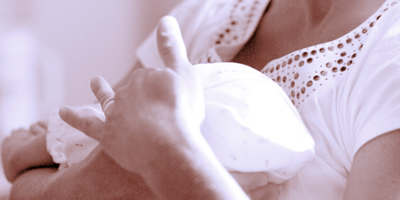
 Lisa Karleski said her daughter, Hailey Grace, had a very specific purpose, and that was to let people know that all babies need someone to stand up for them.
Lisa Karleski said her daughter, Hailey Grace, had a very specific purpose, and that was to let people know that all babies need someone to stand up for them.
When Karleski found out she was pregnant, she was shocked. Her youngest son was 16, and she thought he was the last.
She and her husband Sean were even more confused when an ultrasound revealed their daughter had one of the fatal chromosomal disorders, Trisomy 13. Why would God give them a child now only to take her away while she was still in the womb?
She said it was a devastating journey, especially with people encouraging her to end the pregnancy. But in the birth, she experienced a feeling of peace that she doesn’t think she’ll find again here on earth.
“If I had listened, I would have missed out on holding my child and having closure,” Karleski said. “I got to hold her and have memories of her. Mother’s need that.”
She said Hailey Grace’s purpose is to let people know this type of diagnosis happens all the time, and to let other women know they will be OK — people are there to help.
Be Not Afraid is one of the groups that offers support to couples after they have received a devastating prenatal diagnosis. Kathy Schmugge, director of the diocesan family life office, is in the process of establishing it in South Carolina.
Schmugge said she was concerned with the number of pregnancies that ended in abortion after a poor prognosis was given, and felt the church had to do something to help.
Crystal Stein, who was asked to be the coordinator for the Piedmont region, said it is a mistaken belief that abortions are largely the result of unwanted pregnancy.
In many cases, she said, couples are thrilled to find out the news and excited and anxious for the birth. But when they find out the baby has devastating complications, they are encouraged to end the pregnancy, and they do.
Statistics show that 90 percent of poor prenatal diagnoses end in abortion. It doesn’t have to be that way, she said.
Stein, who attends St. Joseph Church in Anderson, is a certified doula, a woman who assists with childbirth, and is studying to be a midwife.
She said these couples feel cut off from the rest of the world and just need someone with whom to talk and pray.
“To go through that with them would be an honor,” she said. “I would probably cry many times with them, but there’s no shame in that.”
Part of the reason behind the high abortion rate is the secular medical community, Stein said, which is not trained to hold out hope for miracles or to tell parents to put their faith in God.
They are trained to make sure parents understand the worst case scenario. But sometimes tests are wrong, and misdiagnosis happens.
Schmugge talks about a couple who was told their baby had fatal defects. The doctors said even if the baby made it to term, the child was unlikely to live and would suffer with complicated surgeries.
The mother wasn’t working and the father had lost his job. They were encouraged to have an early inducement, which is a term pro-life proponents say is a sugary way to say abortion.
The couple held to their faith and said they wanted to let the pregnancy take its natural course.
When the time came for delivery, their baby was born perfectly healthy.
Of course, this is a best case scenario. The heartbreaking truth is that usually the diagnosis is correct. Late-term miscarriages and stillbirths happen. Babies are born with life-threatening complications and doctors and nurses do everything they can to save them.
No word can adequately describe all the extreme emotions the parents and family feel.
This is why people who have been through the experience become volunteers with groups such as Be Not Afraid. They understand without words.
Greg and Alissa Coulombe are two of those volunteers. When they were pregnant with their first child, they did not know of any support groups and felt very alone, with no one to support or encourage their choice.
Their daughter, Jordan, was diagnosed with the fatal Trisomy 18 and they were encouraged to end the pregnancy. Well-meaning friends would express confusion over why they were putting themselves through such an ordeal.
“We never thought in a million years we’d actually have to stand up for our belief in life,” Coulombe said. “It’s a blessing from God — it’s a life. If God wants to heal that life he will, but we need to honor it.”
After Jordan’s stillbirth, Coulombe and his wife found healing by reaching out to others. He said he was especially concerned with the fathers, who feel the need to be strong and stoic, and as a result are “kind of pushed to the side.”
He said God put it on his heart to reach out to these men, so he went to the Be Not Afraid website and has been involved ever since.
His family, which now includes three other children, attends St. Anne Church in Rock Hill, and he said they hope to help with the Diocese of Charleston’s program.
“Wherever the Lord wants us, we’ll go,” he said.
They know how hard it is, and they know that it’s all worth it.
Despite the swirl of conflicting emotions, ultimately, Jordan’s birth gave them peace.
“Seeing our family and her godparents hold her so lovingly and cherish every second they had with her touched our hearts so deeply,” the couple wrote on Jordan’s website, www.achildofthelight.com. “We will never forget that precious time we all spent together with her.”
Editor’s note: This is the second in a series on the Be Not Afraid program.